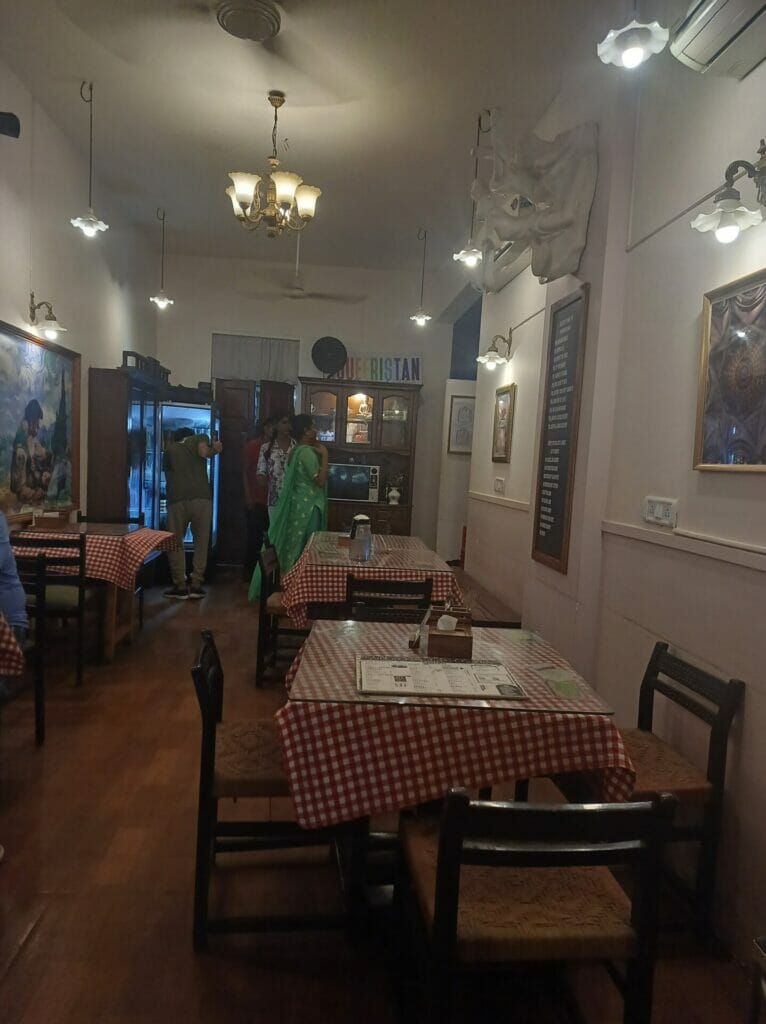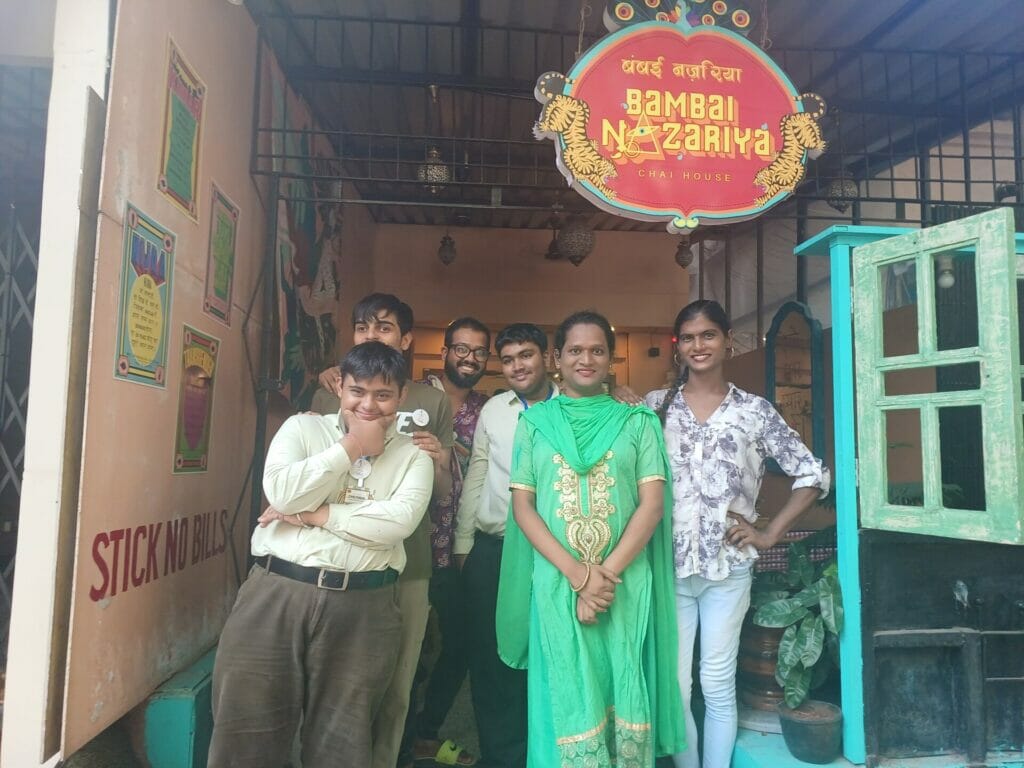Piyu identifies herself as a trans person. Until last year, she would occasionally get called for “blessings” at functions but mostly it was a struggle to survive. But all that changed once she came to Bambai Nazariya.
Bambai Nazariya, located in the busy and vibrant Lokhandwala, at Andheri, is a café that employs trans persons. Amidst the cacophony of traffic and crowd, it is a cozy café that has been running for over a year and bringing solace to the community in more than one ways.
Piyu has been an employee since its inception last year. “Life was very different for me before working at the café. Either people only called us to give blessings, or they would run away from us. There was nothing in between. However, working at the café has helped us earn the respect we deserve. People appreciate the work we do and view us like any other citizen. That’s what matters,” she says.
“I have never considered the café a workplace; it is home to me. Whenever a guest visits us at home, the first thing we do is ask them for water. At the café too, we try to imbibe the same homely and hospitable spirit towards our customers.”
Bambai Nazariya has seven employees, four trans persons and three persons with disabilities, in a first for the hospitality sector. According to the 2011 census, the transgender population in India stands at five lakhs, with Mumbai being home to about 50,000 trans persons.
For Diego Miranda, founder of Bambai Nazariya, the motivation to start the café came from his father, who believed in giving back to the community. He wished to give a platform to people that deserve equal rights and were deprived of the same. This inspired Diego to start this venture.
Challenges to establish Bambai Nazariya
Diego faced many challenges in the early days. He says it is always difficult to establish oneself in the hospitality sector. “My friends and I started on the streets to fund ourselves nearly seven years ago. I sold street food in Mumbai with my partner and friends, as we had a vision of what we wanted to achieve. We didn’t have enough money to employ other people to start our café. It was the biggest challenge we faced, while making Bambai Nazariya what it is today.”
When Diego first thought of this idea, people had one big question, “Inke haath ka khaana kaun khayega?” (Who will eat the food prepared by them?) He would ask in return, “Aap aake khaaoge kya?” (Will you eat?) They agreed willingly. There were mixed, inquisitive reactions about the café’s success, but people supported the idea and came for a visit.
“The response to the café has been overwhelming. The tagline, ‘Nazariya Badlo, Nazara Badlega,’ has begun to change people’s perspective for the positive after they visit our place,” he says.
Amongst some delectable dishes served by the café, the “pink chai” offered by them is famous. It also offers the classic “bun maska” of Mumbai, along with croissants, sandwiches, and a variety of sumptuous Indian dishes.

Read More: What my conversations with trans people in Delhi taught me
Livelihood for transgender community
Piyu feels that the government should provide job opportunities to transgender community to prevent them from begging. Just like the café offers employment, she thinks the government could provide jobs in other fields, like they have in cities such as Pune (defence forces). Trans persons in the police forces in Chennai are provided basic facilities such as housing and healthcare, and she wishes for the same in Maharashtra. Even employment in multi-national companies for the community will help to bring the much-needed change, she says.
Visha Chauhan, another employee working at the café, says that many trans persons cannot complete their primary education. She says the government should ensure that they provide education to be able to work. “Working at the café has been a good experience, and the staff and owners treat me respectfully without any discrimination,” she says.
Family and societal acceptance
Visha hopes that families support their members when they come out. Trans persons to get acceptance from their family members, as they aren’t at fault. “Getting acceptance and love for who we are matters most.”
Piyu says that the transgender community is not hungry for money but for people’s love and acceptance. “We have always been deprived of people’s love and viewed as a ‘different’ section in society. We are humans too, and we only desire people’s love.” She hopes opportunities like Bambai Nazariya will help the community make a place for themselves.
Read More: Labelled, bullied, humiliated: What LGBT students in our schools go through
Citizen contribution for LGBTQ community

According to Diego, citizens can contribute as an ally to the LGBTQ community by giving them the rights they deserve. “The creation of platforms for representation can be an effective contribution to empowerment. Citizens can always start by hiring a trans person in whatever they specialise in and are good at. The government has initiated many opportunities for the community, but people in society should also do their bit by empowering them. “
“I feel initiatives such as Bambai Nazariya will help shatter the stereotypes associated with the community,” says Nitin Karani, an advocate for LGBTQ rights. “This is not traditional begging, or them dancing at weddings, and is unlike anything the heterosexual community perceive the trans persons as.”
“The café offers the people a different side of the community to the people, compared to the limited interaction they may have with them on streets. Initiatives like these show the transgender community in a different light, and debunk the myths surrounding them. It gives them a livelihood and dignity, which is a social outreach for the community,” says Nitin.
“Every day when we begin, there is something to look forward to with the smiles on our employees’ faces. With every customer walking in, it is a new experience that motivates us to move forward and keep running,” says Diego loaded with optimism and hope for the future.